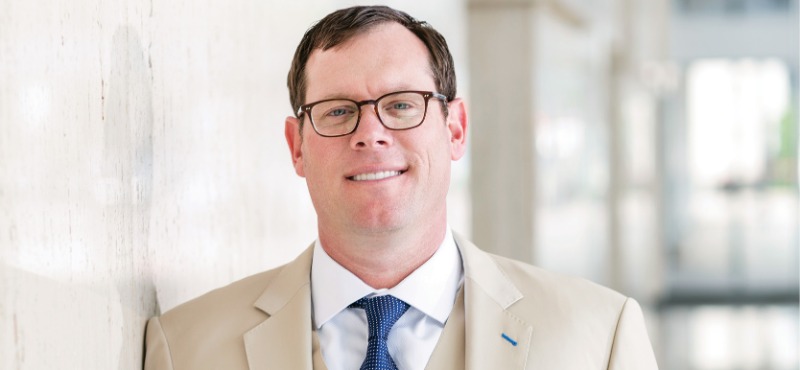The amendment to the Federal Labor Law published on May 1, 2019 establishes new provisions that will apply in jurisdictional procedures, which will begin to have effect as soon as the new Labor Courts are instituted. We highlight the following changes:
Ordinary Procedure
Within the new model of labor justice, the procedure will be the responsibility of the Judicial Branch. This change eliminates the tripartite model, and with it, the Conciliation and Arbitration Boards.
The approved provisions seek a jurisdictional procedure that provides: efficiency, security, transparency and procedural agility, as well as the assistance of technological tools for notifications and dispatches.
The ordinary procedure considers a written part and an oral part, establishing as a prerequisite, a prejudicial conciliatory stage before the newly established Labor Conciliation and Registration Center.
A. Written stage
- The written party shall commence with the filing of a complaint and evidence, followed, upon summons, by the display of the answer to the complaint and evidence.
- At this stage, the right of reply and objection to the evidence of the parties will be provided.
- Contrary to current procedure, amplification of the claim will not be admitted, unless the answer indicates facts that the plaintiff was not aware of.
B. Preliminary Hearing
- A preliminary hearing is provided with the purpose of unburdening the procedure by (i) dismissing non-controversial facts, (ii) admitting the evidence that conform to law and have relation with the dispute, (iii) resolving the procedural exceptions and (iv) summoning the parties to the Trial Hearing.
- In addition, the Tribunal shall order the preparation of the evidence offered, seeking the release of all of it, at the Trial Hearing.
C. Trial Hearing
- At this hearing, any prepared evidence will be presented.
- Allegations will be formulated.
- To speed up the trial, a sentence will be issued at the hearing itself, and only in extraordinary cases will a sentence be issued within 5 days.
Special Procedures
Special procedures continue to offer simplicity and immediacy. In this type of procedure, there will also be a written stage and an oral stage, omitting the preliminary hearing, but keeping the formalities of the ordinary procedure. The difference being that procedural questions and the unburdening of the procedure will be dealt with in the trial hearing.
Special collective procedure
In accordance with the principles of the labor reform, referring to freedom of association and trade union democracy, the special collective procedure is established within the special procedure, with the purpose of resolving collective conflicts between trade unions through the consultation of the workers. The latter is non-negotiable, as it is related to democracy and human rights issues. In this sense, a method has been defined for presenting voting records, by means of a reliable register, having the faculty to request information from the Mexican Social Security Institute (IMSS), the Federal Conciliation and Registration Center, as well as from the employer itself.
New Rules of Procedure
The reform, in line with its progressive agenda, establishes as notoriously improper actions, when the parties, lawyers, or witnesses:
- offer any personal benefit, gift or bribe to officials, as well as to third parties in the proceedings,
- alter a document signed by the worker for a different purpose to incorporate the resignation,
- require the signing of blank papers at the time of hiring or at any time during the employment relationship,
- present notoriously false facts about the salary or seniority of the employment relationship,
- deny access to documents from an actuary.
Anyone who incurs in these acts will be susceptible to further economic sanctions and fines.
It will be guaranteed that the parties have due defense and representation, so that when the Court notices that there is a manifest and systematic professional incapacity of the legal representative, it will warn the affected party to designate another, having three calendar days to do so.
The hearings will be presided over by the Judge, in the event that this obligation is not fulfilled, they will be null and void. Minutes shall be drawn up recording a brief account of the conduct of the hearing and shall be recorded by electronic means, while the parties shall have access to the information recorded.
The conciliating authority or the Tribunal will offer a digital platform for electronic notifications. An e-mail account will be assigned to the parties and subsequent notifications will be made electronically to that e-mail account. When so decided by the parties, personal notifications will also be made to the assigned e-mail account, and the respective electronic acknowledgement of receipt can be sought. In this case no actuarial notifications will be made. There are also changes in the rules that apply to the locations, in order to avoid nullity.The labor authorities will establish a voluntary registration system for employers so that they have an e-mail account to which they can inform them of the existence of some procedure whose placement could not be carried out. This notice is not a substitute for the notifications that must be complied with.
Electronic notifications will have the following rules:
- The parties are obliged to check the assigned e-mail account daily, and obtain proof of that consultation within a maximum period of two days. Even of one does not check the e-mail account, the Court will consider the notification to have been made.
- When there are technical failures in the system, the parties must notify the Tribunal by any other means and the corresponding deadlines will be suspended.
- They will take effect in two days.
In the presentation of confessional evidence, a possibility is added so that, apart from responding to depositions, the confessor may be asked questions, which implies that free questioning is included in the new law.
The presentation of acquittals relating to directors, administrators, managers or persons exercising managerial and administrative functions shall be the responsibility of the attorneys, unless justified cause is shown to prevent it.
Immediacy is pursued through the remote presentation of witnesses who reside outside the residence of the Tribunal through videoconference in which the Tribunal will conduct the presentation of evidence.
With respect to expert evidence, the reform established that the Tribunal will appoint the official expert or experts it deems necessary, and the parties may be accompanied by an advisor to assist them during the presentation of such evidence. The employee may request the Public Defender's Office to assign an adviser to assist him in the presentation of the evidence. This is an important change because the parties will not be able to offer their own experts any longer, rather the Tribunal will designate the expert who will render the report. This should avoid having third party experts having disagreements.
The reform includes electronic receipts as a means of evidence and gives probative value to the CFDI (Digital Tax Receipt), subject to the agreement of the parties.
The decisions of the Tribunals will not admit any recourse, which means that a direct appeal trial (Amparo directo) will continue being the way to challenge the sentences that are issued.
Considerations
We believe that the modifications to the rules of procedure will have a positive effect and will allow the trials to be resolved in a more agile manner and shorter timeframe; if such results can be achieved, the economic speculation that has prevailed in recent years will likely diminish.
However, the transition will not be easy, since it will be the Conciliation and Arbitration Boards that will continue to hear labor disputes under the current procedures, until the new Labor Tribunals begin operating.
The transitory articles have considered a period of 3 years for the creation of the Local Labor Courts and 4 years for the Federal Courts, therefore, during this period, the new procedural rules will not be applicable.
# # #
- Héctor González L. (hglarrazolo@mggl.com.mx)
- Santiago Marván U. (smarvan@mggl.com.mx)
- Héctor González G. (hglezgraf@mggl.com.mx)
- Nelson Guerrero R. (nelson.guerrero@mggl.com.mx)
- Emilio I. Garzón J. (emilio.garzon@mggl.com.mx)
- Cristian J. Lamas P. (cristian.lamas@mggl.com.mx)

















